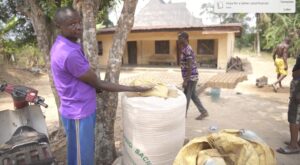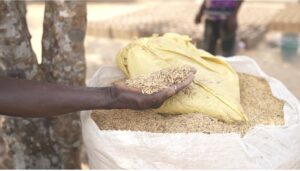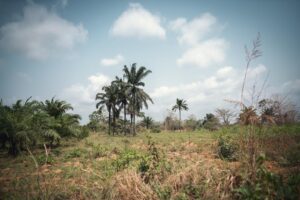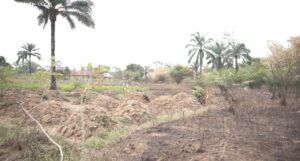How Increase in temperature and irregular rainfall is driving rural farmers and their children to malnutrition in Nigeria and Tunisia.
Written by darling on April 21, 2022
A few years ago, an average farmer in Amachi Mgbaneze a community in Ebonyi Southeastern Nigeria used to harvest about 120 bags of rice from planting 6 bags. Now it’s less than 30 bags of rice after toiling in the field for months.

Increase in temperature is one of the effects of climate change. Climate change means long-term shifts in temperatures and weather patterns. These shifts may be natural, such as through variations in the solar cycle. But since the 1800s, human activities have been the main driver of climate change, primarily due to burning fossil fuels like coal, oil and gas.
In this collaborative story by Chidera Rosecamille Aneke Amos Abba and Amira Karaoud we spoke to farmers in Ebonyi In Eastern Nigeria,Kano in Northern Nigeria, and in Central Tunisia, whose livelihood has been threatened by climate change. As they record poor yields, they don’t make enough income to take care of their family, resulting in poor feeding and malnutrition in their children. When children don’t eat nutritious food, they suffer from malnutrition.
Listen to the audio here.
https://anchor.fm/chidera-




This story is produced as part of International Center For Journalists and Eleanor Crook Foundation’s Global nutrition and food security reporting fellowship.

